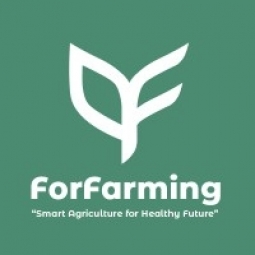Technology Category
- Analytics & Modeling - Computer Vision Software
- Infrastructure as a Service (IaaS) - Public Cloud
Applicable Industries
- Consumer Goods
- Retail
Applicable Functions
- Logistics & Transportation
- Procurement
Use Cases
- Clinical Image Analysis
- Last Mile Delivery
About The Customer
Getir is the largest online grocery delivery company in Turkey, experiencing rapid growth and expansion throughout Europe. They are known for their innovative approach to online grocery delivery, constantly seeking new ways to improve their services and stay ahead of their competition. Despite their success, they face challenges from emerging competitors and the need to continuously innovate to maintain their market position. A key area of focus for Getir is the ultra-fresh produce category, which has the potential to generate a significant volume of additional orders due to the perishable nature of the products.
The Challenge
Getir, the largest online grocery delivery company in Turkey, experienced over 900% growth in the first half of 2021 and expanded its business throughout Europe. However, this rapid success attracted many competitors, including emerging online delivery companies and major retail chains starting their online delivery services. This competition forced Getir to continuously innovate and improve its value proposition to maintain its growth trajectory. A significant challenge was encouraging customers to order from the ultra-fresh produce category, as many were uncomfortable purchasing fresh produce without inspecting it themselves. Additionally, in the aftermath of the Covid-19 pandemic, food safety became a vital public concern. To address these issues, Getir decided to start a transparency project for its ultra-fresh produce category to encourage online ordering behavior by gaining consumers’ trust and differentiate itself from the competition.
The Solution
Getir implemented Trusty by ForFarming, a platform that allows agricultural producers to show their production processes, analysis reports, certificates, and facility information to consumers by printing QR codes on the packages. This solution emphasizes the quality of products by reaching consumers and promotes their sustainability, freshness, and safety. Getir and ForFarming started a joint project, getting Getir’s suppliers on board. ForFarming designed unique QR code landing pages for Getir and customized the data entry fields to match Getir’s supply chain. Getir’s suppliers recorded all of their production processes on the customized data fields separately for each batch they produce and printed the respective QR codes of each batch to the packages of the products in those batches. Getir customers were then able to scan these QR codes after their orders arrived to view how, where, and by whom each batch was produced.
Operational Impact
Quantitative Benefit

Case Study missing?
Start adding your own!
Register with your work email and create a new case study profile for your business.
Related Case Studies.
.png)
Case Study
Improving Vending Machine Profitability with the Internet of Things (IoT)
The vending industry is undergoing a sea change, taking advantage of new technologies to go beyond just delivering snacks to creating a new retail location. Intelligent vending machines can be found in many public locations as well as company facilities, selling different types of goods and services, including even computer accessories, gold bars, tickets, and office supplies. With increasing sophistication, they may also provide time- and location-based data pertaining to sales, inventory, and customer preferences. But at the end of the day, vending machine operators know greater profitability is driven by higher sales and lower operating costs.

Case Study
Improving Production Line Efficiency with Ethernet Micro RTU Controller
Moxa was asked to provide a connectivity solution for one of the world's leading cosmetics companies. This multinational corporation, with retail presence in 130 countries, 23 global braches, and over 66,000 employees, sought to improve the efficiency of their production process by migrating from manual monitoring to an automatic productivity monitoring system. The production line was being monitored by ABB Real-TPI, a factory information system that offers data collection and analysis to improve plant efficiency. Due to software limitations, the customer needed an OPC server and a corresponding I/O solution to collect data from additional sensor devices for the Real-TPI system. The goal is to enable the factory information system to more thoroughly collect data from every corner of the production line. This will improve its ability to measure Overall Equipment Effectiveness (OEE) and translate into increased production efficiencies. System Requirements • Instant status updates while still consuming minimal bandwidth to relieve strain on limited factory networks • Interoperable with ABB Real-TPI • Small form factor appropriate for deployment where space is scarce • Remote software management and configuration to simplify operations

Case Study
Digital Retail Security Solutions
Sennco wanted to help its retail customers increase sales and profits by developing an innovative alarm system as opposed to conventional connected alarms that are permanently tethered to display products. These traditional security systems were cumbersome and intrusive to the customer shopping experience. Additionally, they provided no useful data or analytics.

Case Study
How Sirqul’s IoT Platform is Crafting Carrefour’s New In-Store Experiences
Carrefour Taiwan’s goal is to be completely digital by end of 2018. Out-dated manual methods for analysis and assumptions limited Carrefour’s ability to change the customer experience and were void of real-time decision-making capabilities. Rather than relying solely on sales data, assumptions, and disparate systems, Carrefour Taiwan’s CEO led an initiative to find a connected IoT solution that could give the team the ability to make real-time changes and more informed decisions. Prior to implementing, Carrefour struggled to address their conversion rates and did not have the proper insights into the customer decision-making process nor how to make an immediate impact without losing customer confidence.









